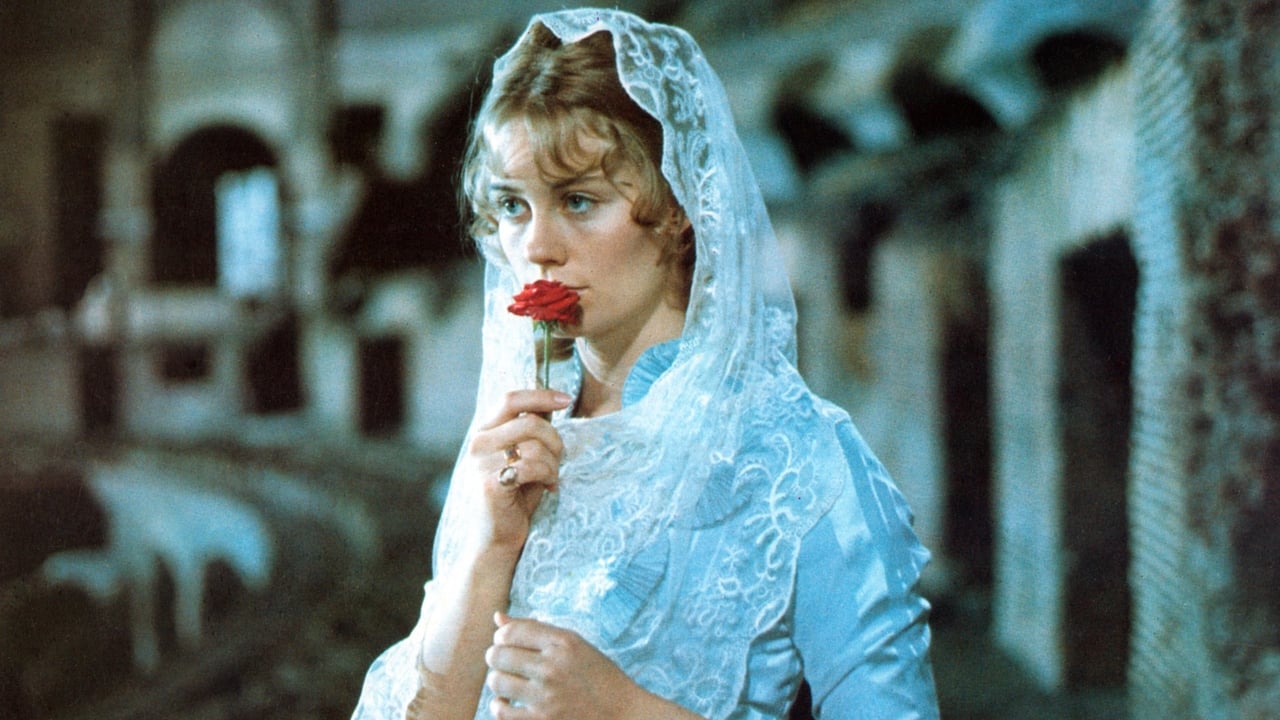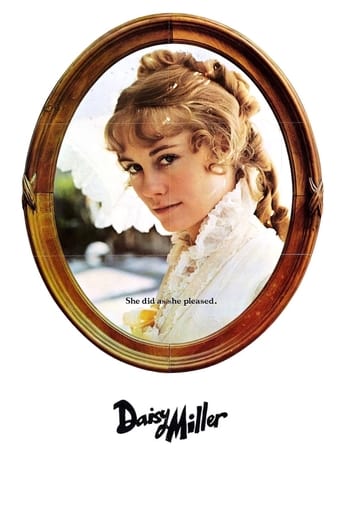

Many reviewers here seem to have confused the story and characters with the film and the actors.Yes, Daisy in the film is rather flat and monotonous. But that's a high compliment -- that the ravishing Cybill Shepherd could so accurately portray such a flat character. Henry James at one point describes Daisy's expression as a "light, slightly monotonous smile", in another her voice as a "little soft, flat monotone". He says late in the story that "there was always, in her conversation, the same odd mixture of audacity and puerility". No, she wouldn't be a very pleasant person to be around for long. But that was part of James's point: that our attraction to people (especially those of the opposite sex) often defies reason. Shepard makes the point well.Some have commented that they wished the story had been filled out. Some of those apparently haven't read the story. One of those critics even places the story wrong by forty years. Though called a novella, it's barely more than a short story. In fact the film does a remarkable job of portraying the events and (more importantly) the characters very much as they are in the story. The great majority of the dialog in the film is verbatim from the story.In some instances, the scenes and characters were significantly expanded from the James story. How far should a director go, if the aim is to film a classic story, not just to make something derived from that story? James's characters were pretty flat, a lot flatter than those in the film. One could justifiably criticize the film for telling the story far better than James did.Do you think James's story is dated and flat in the modern world? Well, in many ways so do I. A polemical assault on discrimination based on manners and birth is truly dated. Yet an assault on personal discrimination remains fully current. The modern world is certainly not devoid of personal discrimination. Perhaps it's not often so ugly, not in the first world anyway, but prejudice is very much alive.James's story is also unsubtle: two groups of people with differing views, one person caught with one foot in each camp, unhappy results. That's about it. Should one film the classic story, or build something different? It's a choice; great films have been made both ways. The choice for this film was unambiguous: to film the classic story.The photography is truly gorgeous -- the film (at least the outdoor parts) was shot on location in Vevey, Switzerland and Rome, Italy. Despite the long stretches of dialog, including Daisy's run-on commentaries, one need not strain to understand the words. If the story were as good as the production and acting (several good performances) then this would be a 10. The faithfulness to the original weights it down.
... View MoreI agree with the reviewer who finds Ms. Shepherd utterly wrong for the part, and quite destroying the film. Henry James is a much more subtle portraitist of Americans abroad during that period than either actress or director could represent. For a start, someone so obnoxiously shallow as Shepherd's Daisy, and whose attempts at vivaciousness and flirtation so blatantly stagy, that the young hero must have been an absolute dill to have been so smitten. Nor is the actress so beautiful (or really young) as to make his sexual infatuation credible. Still it could have been worse, it could have been the worst "simperer" of all time, Mia Farrow cast in the role. That would have been a pill. However, possibly her special brand of naive vulnerability may have made Daisy more sympathetic. Thank good EVERYONE ELSE in the cast (apart from an uncharismatic and therefore unconvincing, Duilio del Prete as Gionavelli) is not only believable, but put in amazing performances, especially Barry Brown, Cloris Leachman, Mildred Natwick and Eileen Bannen, all perfect in their roles.The theme of innocence destroyed by the social environment, not to mention evil schemers (as in Portrait of a Lady) or in this case, symbolically, the natural environment ("Roman Fever"), or even supernatural environment (as in Turn of the Screw) is a really central issue in many of James's novels and stories. To feel sympathy for the protagonist, she (as the protagonist often is) has to have not only innocence (which is misconstrued, exploited and/ or finally shattered), but also a kind of unshakable moral core. This could be as simple as a confident and self-possessed disregard of convention, or a genuine moral belief of the rightness of one's own actions. It is often represented as a subtle character trait. Although these themes are indeed present in the film, Bogdanovich' simply fails to capture the quiet intensity of James's work.
... View MoreDaisy Miller became a sabotage job by the very inclusion and insistence of Cybil Shepard as Daisy. As maybe the choice of Cloris Leachman as her mother proves to be eccentric if not slightly erroneous, there is nothing more damning to what could have been a wonderful literary adaptation. Peter Bogdonavich often does not know how to do his job, that is direct. I offer the example of Cher's repeated refusal and head butting against his, to turn her tour-de-force as Rocky Denis' mother in "Mask", to a simpering, gutless wonder. Man was he wrong then as he was wrong with this picture in particular. The religious adherence to accuracy hampers the actors and the film's own creativity and prevents any beefing up where it would have greatly paid to do so. I ,in instance, refer to the brilliantly talented actor Barry Brown as Winterbourne. He's the romantic male lead but is practically made a eunuch in this film, no doubt because Pete was serenading the starlet with his camera all for himself, that no amount of screen ability could have facilitated Barry to have cut into what was obviously a three's a crowd. His scenes with REAL ACTRESSES, Eileen Brennan and Mildred Natwick, display different sides to his character's character and he does this beautifully; the sharp fine line of snobbery, dutiful nephew, and feckless Continental anti-hero. He is all the while completely believable and damned likable, practically the only heart in the whole cadre of performances. Eileen Brennan is wonderful as cold but not without caring as she fusses over Daisy's refusals at propriety and of course, Mildred Natwick is a feast to watch, as one flicker of her face is meant to speak volumes. I watch it for Barry who deserved a thousand times better than this and Ms. Brennan and Ms. Natwick and ignore Cybil as best I can. I recommend for anyone to do the same.
... View MoreMs. Shepherd's fluttery, busy, yet essentially one-note performance undermines an effortful, well-pedigreed adaptation of a seemingly unfilmable work. The screenplay is nimble and witty, the photography lush, the locations dazzling, the supporting cast well-chosen -- how can anyone not respond to Mildred Natwick in anything? But it's all up to the star, and here, she's not up to it. Admittedly, Daisy is a shallow character, but a more thoughtful actress would give her more dimension (today, maybe, Gwyneth Paltrow could do it).It's irresistible to consider the parallels between real life and reel life: The young Bogdonavich dotes on his leading lady as blindly as Barry Brown's character dotes on Daisy. But the poignancy is tempered somewhat when you consider that this nattering, uninteresting young lady would be absolute hell to live with.
... View More